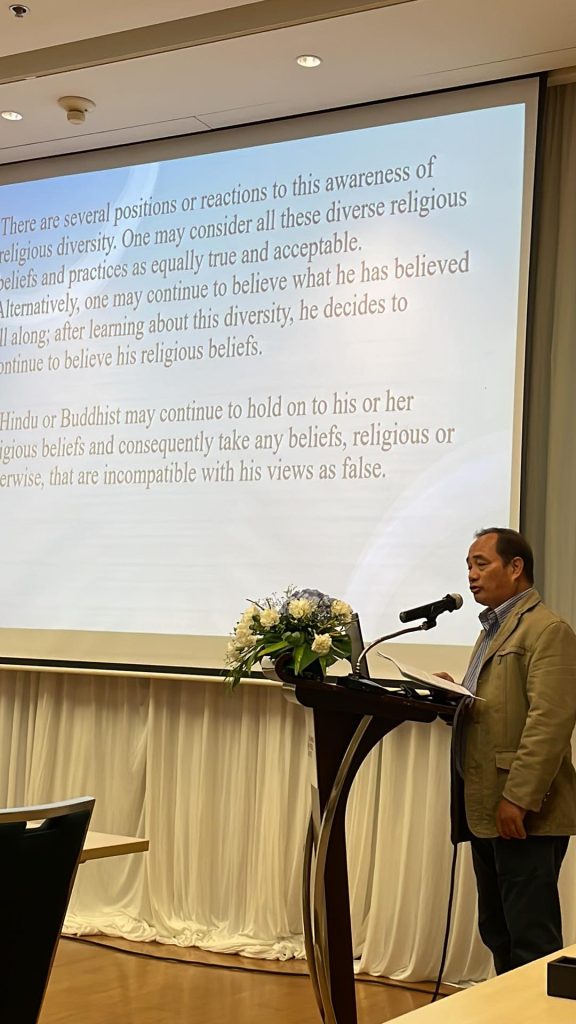Prof. Jove Jim Aguas, Ph.D. of the Faculty of Arts and Letters and the Center for Theology, Religious Studies and Ethics participated in the culminating conference of the Global Philosophy of Religion Project: Philosophies of Appropriated Religions in Southeast Asia. The Conference was held in Pathumwan Princess Hotel, Bangkok, Thailand on September 5-7, 2022, and was attended by researchers in the area of philosophy of religion from Southeast Asia.

Aguas’ paper with the title, “A Critical Look at Religious Diversity and Responding to its Challenges,” was delivered on the afternoon of the last day of the conference. He talked about the phenomenon of religious pluralism, particularly in the context of Asia including the Philippines, and he expounded the three fundamental epistemological positions on religious diversity namely exclusivism as proposed by Alvin Plantinga, inclusivism as proposed by Karl Rahner, and pluralism as proposed by John Hick.
He ended his presentation with a discussion on the potential responses to the challenges brought by religious diversity, and he affirmed the promise offered by the pluralistic framework because of its openness to accommodate various religious positions, which is the present context of Asia. Aguas also reiterated that “Inter-religious dialogue is an open relation and interaction among religions or religious people based on respect, understanding, and hospitality. Inter-religious dialogue is a mechanism that can counter violence due to religious conflicts. It can serve as a mechanism for the promotion of harmony and peace for it fosters mutual knowledge and enrichment, lessens tensions and misunderstanding, and promotes common goals and collaborations among followers of different religions.”
The paper will eventually be published as a chapter of a much-anticipated anthology of the Global Philosophy of Religion Project supervised by De La Salle University’s Southeast Asia Research Center and HUB (SEARCH) and is funded by the University of Birmingham and John Templeton Foundation.




